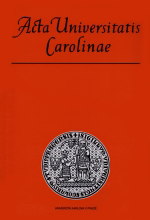Lisabonská smlouva pod lupou Ústavního soudu ČR
The Treaty of Lisbon under Review of the Czech Constitutional Court
Author(s): Lenka PítrováSubject(s): Law, Constitution, Jurisprudence
Published by: Univerzita Karlova v Praze, Nakladatelství Karolinum
Keywords: Treaty of Lisbon; Constitutional Court; Charter of Fundamental Rights of the EU; transfer of competence; evolutive clauses; bridging clauses; flexibility clause
Summary/Abstract: The article deals with the “Lisbon judgements” of the Czech Constitutional Court which raised important constitutional questions, similar to those discussed by lawyers and constitutional courts in other Member States. In the first case – Lisbon I – initiated by the petition of the Senate of the Parliament in April 2008, the Constitutional Court adjudicated the conformity of the Treaty of Lisbon (ToL) with the constitutional order (under Art. 87 par. 2 of the Constitution). As the Court faced this type of procedure for the first time, the decision is an important procedural precedent. The Court confined its review only to those provisions of the Treaty whose conformity with the constitutional order the petitioner questioned expressly, and with justification leaving the possibility for other petitioners open. The petition as well as the judgment focused mainly on the transfer of competence, dynamic provisions of the Treaty (so-called evolutive clauses) such as bridging clauses and flexibility clause and the legal status of the Charter of Fundamental Rights of the EU and its interpretation. The Constitutional Court, referring to the principal of conferral, held that the EU remains an international organisation of sovereign states. The transfer of competence can not go so far as to violate the very essence of the sovereign, unitary and democratic, law-abiding State. The Court generally recognized the functionality of the EU institutional framework for ensuring review of the scope of the exercise of the transferred competence, although it acknowledged that its position could change in the future if it turns out that this framework is demonstrably non-functional. Moreover, the Constitutional Court can review whether an act of the Union exceeds the limits of powers transferred to the EU. The argumentation of the Court as regards the objections of the Senate is presented in the article. The Court finally ruled that the contested provisions are not in conflict with the constitutional order and the ToL was subsequently approved by both Chambers of the Parliament. At the same time, in order to dispel remaining doubts of some legislators, an amendment to the Rules of Procedure of both Chambers was adopted, introducing the obligation for the Government to seek ex ante approval of both Cambers before voting on the above mentioned dynamic provisions in the Council or European Council (so-called binding mandate). Two petitions were subsequently lodged with the Court by a group of 17 senators. Inspired by the Lisbon judgment of the German Constitutional Court, the group of 17 senators sought abrogation of certain provisions of the Law on the Rules of Procedure of both Chambers of the Parliament, newly regulating the involvement of the Parliament in the application of the above mentioned dynamic provisions of the Treaty. The Constitutional Court rejected this petition mainly for procedural reasons. (...)
Journal: Acta Universitatis Carolinae Iuridica
- Issue Year: 56/2010
- Issue No: 3
- Page Range: 51-74
- Page Count: 24
- Language: Czech

